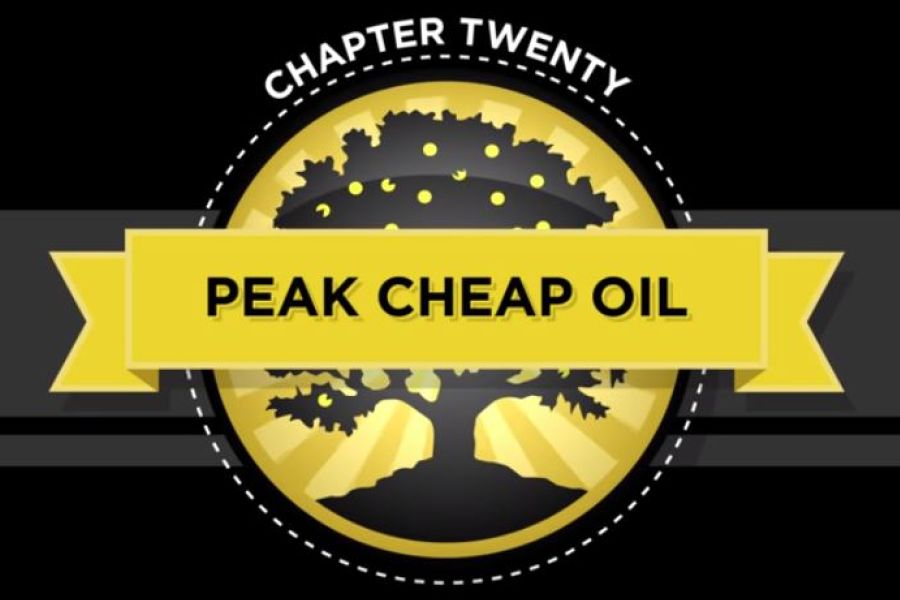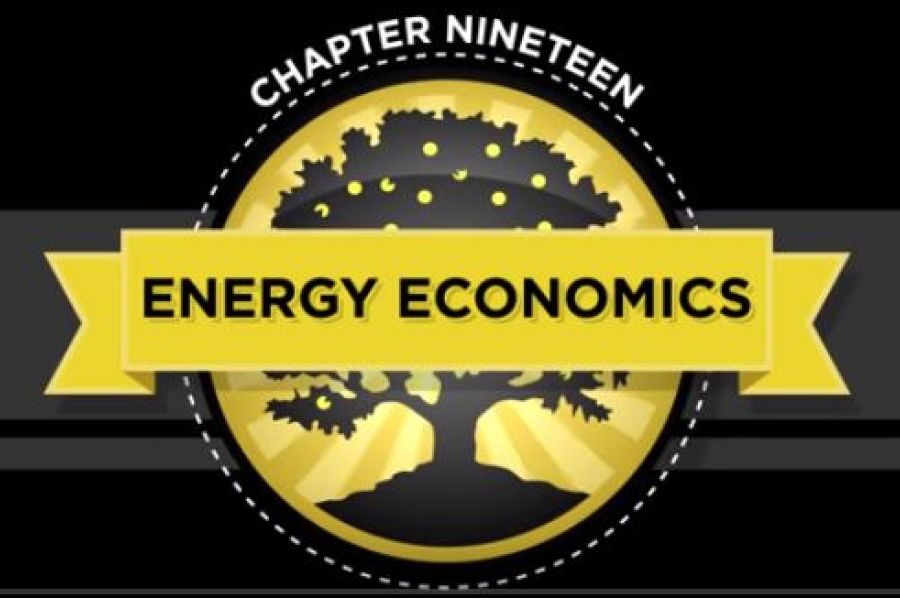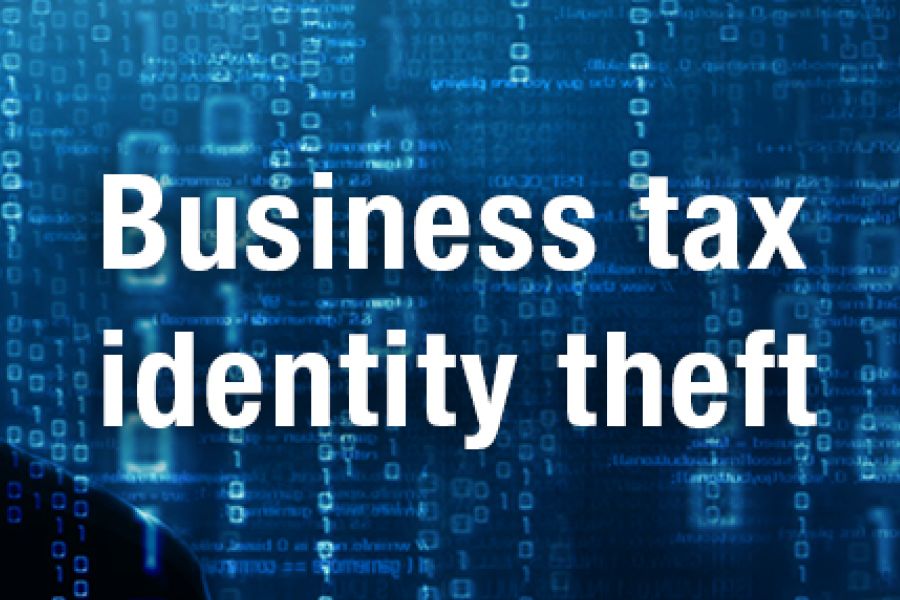As posted on the Peak Prosperity.com and the Chris Martenson's Peak Prosperity YouTube Channel Background The Crash Course has provided millions of viewers with the context for the massive changes now underway, as economic growth as we've known it is ending due to depleting resources. But it also offers real hope. Those individuals who take informed action today, while we still have time, can lower their exposure to these coming trends -- and even discover a better way of life in the process. In this Blog, I am presenting the 27 (inclusive of the introduction) installments of The Crash Course, one per week. Previous installments of "The Crash Course" can be found here: Blog (#311) Introducing "The Crash Course" Blog (#314) Chapter 1: Three Beliefs Blog (#319) Chapter 2: "The Three 'Es'" Blog...

Businesses that acquire, construct or substantially improve a building — or did so in previous years — should consider a cost segregation study. It may allow you to accelerate depreciation deductions, thus reducing taxes and boosting cash flow. And the potential benefits are now even greater due to enhancements to certain depreciation-related breaks under the Tax Cuts and Jobs Act (TCJA). Real property vs. tangible personal property IRS rules generally allow you to depreciate commercial buildings over 39 years (27½ years for residential properties). Most times, you’ll depreciate a building’s structural components — such as walls, windows, HVAC systems, elevators, plumbing and wiring — along with the building. Personal property — such as equipment, machinery, furniture and fixtures — is eligible for accelerated depreciation, usually over five...
Jim Rickards pulls no punches about his opinion of Bitcoin and it's prospects for the future in a collage of television appearances from 2009 - 2018. James G. Rickards is an American lawyer. He is a regular commentator on finance, and is the author of The New York Times bestseller Currency Wars: The Making of the Next Global Crisis, published in 2011 as well as biennial followup books, James Rickards is the Editor of Strategic Intelligence, a financial newsletter, and Director of The James Rickards Project, an inquiry into the complex dynamics of geopolitics + global capital....
If you’re charitably inclined and you collect art, appreciated artwork can make one of the best charitable gifts from a tax perspective. In general, donating appreciated property is doubly beneficial because you can both enjoy a valuable tax deduction and avoid the capital gains taxes you’d owe if you sold the property. The extra benefit from donating artwork comes from the fact that the top long-term capital gains rate for art and other “collectibles” is 28%, as opposed to 20% for most other appreciated property. Requirements The first thing to keep in mind if you’re considering a donation of artwork is that you must itemize deductions to deduct charitable contributions. Now that the Tax Cuts and Jobs Act (TCJA) has nearly doubled the standard deduction and put...
As posted on the Peak Prosperity.com and the Chris Martenson's Peak Prosperity YouTube Channel Background The Crash Course has provided millions of viewers with the context for the massive changes now underway, as economic growth as we've known it is ending due to depleting resources. But it also offers real hope. Those individuals who take informed action today, while we still have time, can lower their exposure to these coming trends -- and even discover a better way of life in the process. In this Blog, I am presenting the 27 (inclusive of the introduction) installments of The Crash Course, one per week. Previous installments of "The Crash Course" can be found here: Blog (#311) Introducing "The Crash Course" Blog (#314) Chapter 1: Three Beliefs Blog (#319) Chapter 2: "The Three 'Es'" Blog...
For investors, fall is a good time to review year-to-date gains and losses. Not only can it help you assess your financial health, but it also can help you determine whether to buy or sell investments before year end to save taxes. This year, you also need to keep in mind the impact of the Tax Cuts and Jobs Act (TCJA). While the TCJA didn’t change long-term capital gains rates, it did change the tax brackets for long-term capital gains and qualified dividends. For 2018 through 2025, these brackets are no longer linked to the ordinary-income tax brackets for individuals. So, for example, you could be subject to the top long-term capital gains rate even if you aren’t subject to the top ordinary-income tax rate. Old rules For...
As posted to the David Stockman YouTube Channel on 9/15/18 (David Stockman starts at time marker 0:47) David Stockman is interviewed at the 2018 Sprott Natural Resource Symposium to discuss the great $20 Trillion elephant in the room which he explains is the Balance Sheets of all of the Central Banks of the world "in excess of what it probably should be in a rational, stable, historically prudent world". David Stockman is a former businessman and U.S. politician who served as a Republican U.S. Representative from the state of Michigan and as the Director of the Office of Management and Budget under President Ronald Reagan. He is the author of a number of books including "The Great Deformation: The Corruption of Capitalism in America" and, most recently, "Trumped!...
As posted to the GoldSilver YouTube Channel on 12/18/17 (explanation of documentary as appears on YouTube) Today, mankind stands at a crossroads, and the path that humanity chooses may have a greater impact on our freedom and prosperity than any event in history. In 2008 a new technology was introduced that is so important that its destiny, and the destiny of mankind are inextricably linked. It is so powerful that if captured and controlled, it could enslave all of humanity. But if allowed to remain free and flourish - it could foster unimaginable levels of peace and prosperity. It has the power to replace all financial systems globally, to supplant ninety percent of Wall St, and to provide some functions of government. It has no agenda. It's always fair...
Tax identity theft may seem like a problem only for individual taxpayers. But, according to the IRS, increasingly businesses are also becoming victims. And identity thieves have become more sophisticated, knowing filing practices, the tax code and the best ways to get valuable data. How it works In tax identity theft, a taxpayer’s identifying information (such as Social Security number) is used to fraudulently obtain a refund or commit other crimes. Business tax identity theft occurs when a criminal uses the identifying information of a business to obtain tax benefits or to enable individual tax identity theft schemes. For example, a thief could use an Employer Identification Number (EIN) to file a fraudulent business tax return and claim a refund. Or a fraudster may report income and withholding...
- 1
- 2
- 3
- 4
- 5
- 6
- 7
- 8
- 9
- 10
- 11
- 12
- 13
- 14
- 15
- 16
- 17
- 18
- 19
- 20
- 21
- 22
- 23
- 24
- 25
- 26
- 27
- 28
- 29
- 30
- 31
- 32
- 33
- 34
- 35
- 36
- 37
- 38
- 39
- 40
- 41
- 42
- 43
- 44
- 45
- 46
- 47
- 48
- 49
- 50
- 51
- 52
- 53
- 54
- 55
- 56
- 57
- 58
- 59
- 60
- 61
- 62
- 63
- 64
- 65
- 66
- 67
- 68
- 69
- 70
- 71
- 72
- 73
- 74
- 75
- 76
- 77
- 78
- 79
- 80
- 81
- 82
- 83
- 84
- 85
- 86
- 87
- 88
- 89
- 90
- 91
- 92
- 93
- 94
- 95
- 96
- 97
- 98
- 99
- 100
- 101
- 102
- 103
- 104
- 105
- 106
- 107
- 108
- 109
- 110
- 111
- 112
- 113
- 114
- 115
- 116
- 117
- 118
- 119
- 120
- 121
- 122
- 123
- 124
- 125
- 126
- 127
- 128
- 129
- 130
- 131
- 132
- 133
- 134
- 135
- 136











